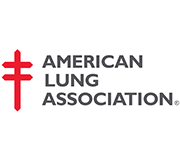CONFLICT OF INTEREST? Barnes-Jewish Hospital and KSDK announced in March that they joined in a partnership. Can the TV station provide balanced reporting on hospitals if it's getting paid by one? (Credit: Barnes-Jewish)
The St. Louis Post-Dispatch highlighted blurred lines between advertising and news with a new TV sponsorship agreement in St. Louis between Barnes-Jewish Hospital and NBC-affiliate KSDK.
As the Post-Dispatch detailed, the hospital and TV station are working together on a ten-month “project” launched in March. The project includes weekly feature segments on cancer prevention, monthly hospital-run segments on cancer prevention, and monthly phone and online chats on cancer prevention.
And, occasionally during newscast commercial breaks, the station will air the hospital’s “two-minute stories on cancer prevention.”
The financial arrangement isn’t being disclosed. The news station will have “editorial control” over the hospital’s “news segments.”
The marketing and communications director for the hospital’s cancer center, Arlinda Warren, is quoted as telling the Post-Dispatch that the hospital approached the news station and said “Here’s what our need is, help us develop a program that will help us meet that need.”
“Mike Shipley, KSDK news director, said stories about cancer would likely feature Barnes-Jewish doctors even without a financial relationship between the hospital and his station,” the Post-Dispatch reported.
Shipley defended the sponsorship and said there was no conflict of interest.
“Nobody’s funding news coverage. I fail to see the conflict. Who’s against curing cancer?”
Further, Shipley commented that the hospital’s cancer center is “the most authoritative voice in this community.” He described the TV station’s partnership with the hospital as an educational project “on cancer prevention.”
The Post-Dispatch compared the Barnes-Jewish Hospital/KSDK arrangement to a 2003 3-year arrangement between Kansas City’s HCA hospitals and Kansas City TV station KCTV. The hospitals paid $1.5 million for commercials and news segments.
SPJ/AHCJ Guidelines on Hospital-Media Partnerships
The Post-Dispatch noted that in 2008 the Society of Professional Journalists and the Association of Health Care Journalists (AHCJ) created a set of standards “in response to a rise in hospital-media partnership.”
In that 2008 press release (see here), the two organizations announced their “concern over media’s partnerships with health organizations.”
The SPJ and AHCJ recommended media outlets “avoid hospital partnership deals that interfere with independent news coverage of health care” and “criticized news organizations that accept payment for special influence.”
The SPJ also commended a Wisconsin journalist who resigned from his post as a news director because his station took a deal “to accept payment from a local hospital to produce ‘news segments’ that had to feature employees at this hospital.”
If a media outlet agrees to partner with a hospital, SPJ and AHCJ recommended disclosure of any provided materials, labeling any “prepackaged stories,” and balanced reporting on health-care providers.
Read more here.
iMediaEthics is writing to the hospital and the KSDK for more information and will update with any response.






